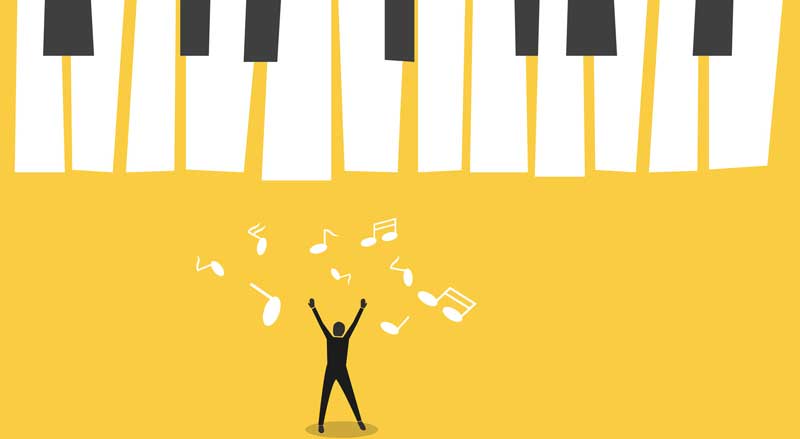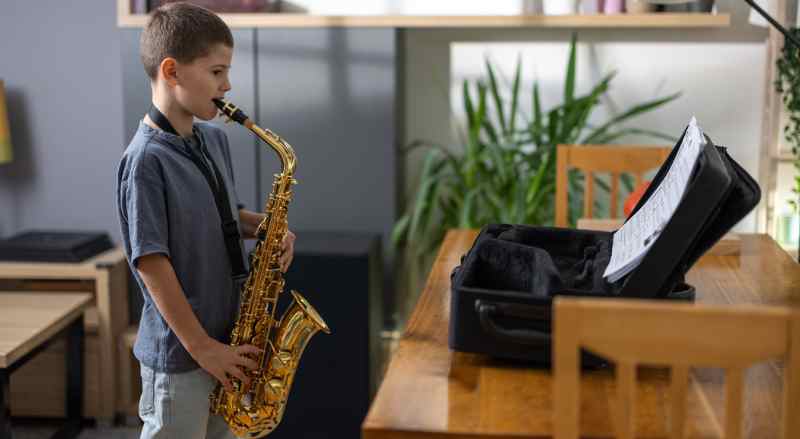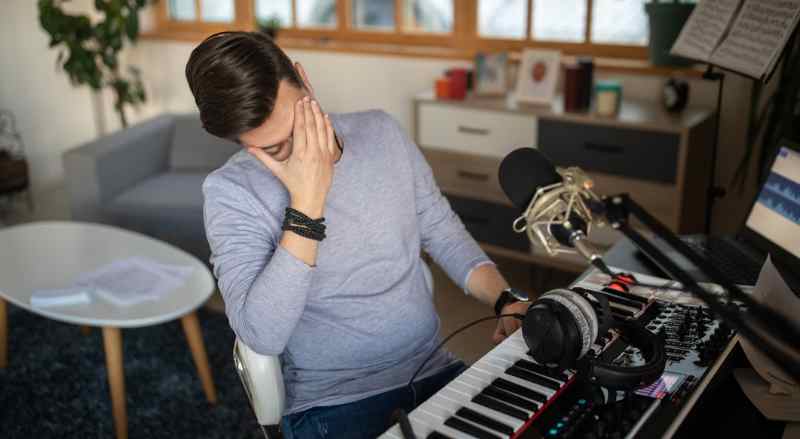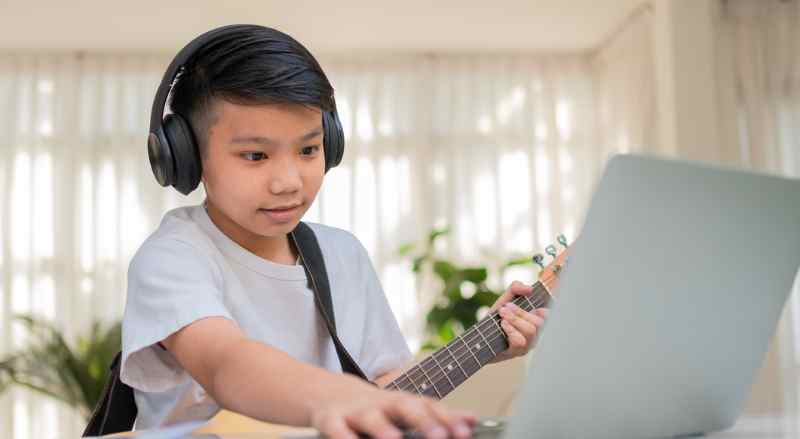

When it comes to music, practice isn’t just important, it’s everything—but practicing effectively can sometimes be a challenge.
Whether you’re a seasoned musician or just picking up your first instrument, understanding the art of effective practice can help to make all the difference.
To practice effectively, it’s important to be consistent and repeat what you’re learning with intention.
Effective practice isn’t about mindlessly repeating scales or songs. It’s about focus and intention.
When you make a mistake, take the time to understand what went wrong and fix it immediately.
This will help your muscle memory learn the correct movements from the start.
We are aiming for mindful repetition here, so avoid simply repeating the same tune or scale over and over like we all did when we learned ‘Smoke on the Water’ the first week into guitar lessons.
To keep your practice exciting and fresh, shake things up and avoid the trap of redundancy. Challenge yourself and stay on your toes—push your limits and discover new ways to grow.
Switch between different songs, techniques, or even instruments if you play multiple.
This is a journey. Embrace it and make it an adventure.

Set clear goals to keep things interesting (and yourself accountable).
Think about your long-term dreams and the shorter, achievable goals you can set.
These will help you stay motivated, which in turn enables you to make steady progress towards your bigger aspirations.
Having a clear target helps you focus your efforts and can be really rewarding, as it can give you a sense of accomplishment when you reach it.
Now, let’s talk about the practice itself.
Quality trumps quantity every time.
It’s not about how long you practice but how effectively you use that time – which is precisely the whole premise of this article.
Don’t just count the hours and mindlessly go through the motions. Doing so will only result in your failure. Build Good Habits
Instead of repeating tasks, focus on the tricky parts and work to improve them.
This will make each practice session feel like real progress, not just a way to fill time.
Don’t be afraid to spice things up and challenge yourself.
Set clear goals and push yourself a bit more during each practice session to make your rehearsals impactful and rewarding. Allow yourself to be motivated by your improvements!
When you practice with intention, it becomes more than just a routine—a concept very similar to what we discussed earlier about mindful repetition.
Adopting this approach will enhance your growth and development as a musician.

If you find yourself ever struggling, don’t overwhelm yourself by tackling an entire piece in one go.
Instead, divide it into smaller, manageable chunks. Work on a little bit at a time, then gradually put it all together.
Slow and steady wins the race.
Tackling one small part at a time makes the learning process less daunting. It allows you to concentrate on perfecting each section before moving on.
Focus on accuracy first, then gradually increase the tempo.
In our tech-savvy world, countless apps and tools are designed to enhance your music practice.
From metronomes to tuning apps, utilizing these tools can help you stay on track and make your practice sessions more fun and efficient.
YouTube tutorials can also be a goldmine for learning new techniques or finding inspiration.

Recording yourself is one of the most effective ways to improve your practice.
You might feel awkward initially, but it’s one of the best ways to spot mistakes you might miss otherwise.
Plus, listening back allows you to track your progress over time.
You get a little boost in your confidence level when you realize how far you’ve come!
Don’t underestimate the value of rest and reflection.
Short, frequent breaks are often more effective than marathon practice sessions.
Taking breaks is important to prevent mental fatigue and stay focused during sessions. Taking time to rest and reflect on your practice is necessary for growth.
So, get up, stretch, grab a glass of water. Your mind (and body) will thank you.

Practicing with someone else can add a layer of accountability and make the process more rewarding.
Having others in your corner, whether a teacher or a group of friends, can make a big difference.
Listen, we only live this life once.
Stay inspired by immersing yourself in the music you love!
When your enthusiasm dips, turn to those artists who light up your spirit; they serve as a fantastic reminder of your goals and aspirations.
Whatever you do, don’t get discouraged, and allow yourself to quit.
Challenges and plateaus are part of the journey. They are not roadblocks; they are opportunities to grow and learn.

Like any skill, effective practice gets easier with time and consistency.
By setting goals, practicing with intention, and mindful repetition, you’ll make real progress faster than you thought possible.
In conclusion, mastering your music through effective practice is about being smart with time and effort.
Keep experimenting, stay patient, stay positive, and trust the process.
Practicing is key to unlocking your musical potential!
If you’re eager to sharpen your skills or seek some extra support, we would love to hear from you.
Contact B Natural Pianos and Music School, and together, we can maximize your practice time.
We’re excited to support you on this wonderful journey every step of the way!